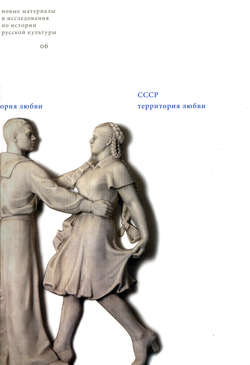Читать книгу СССР: Территория любви - Сборник статей - Страница 6
Юрий Мурашов
Любовь и политика: о медиальной антропологии любви в советской культуре
Примечания
Оглавление1 Ср.: Luhmann N. Liebe als Passion: Zur Codierung von Intimität. Frankfurt a. M., 1982; Barthes R. Fragments d’un discours amou-reux. Paris, 1977. Автономность любви по отношению к обществу Барт осмысляет в связи с созданием собственной системы языка любви (discours), которая, с одной стороны, проявляется в модальности одиночества, а с другой – перед угрозой власти и ее познавательных субститутов: науки и искусства: «[L] е discour amoreux est aujord’hui d’une extreme solitude. Ce discours est peut-etre parle par des milliers de sujets <…>, mais il n’est soutenu par person-ne; il est completement abandonne des lan-gages environnants: ou ignore, ou deprecie, ou moque par eux, coupe non seulement du pouvior, mais aussi de ses mecanismes (sciences, savoirs, arts). Lorsqu’un discours est de la sorte entraine par sa propre force dans la derive de l’inactuel, deporte hors de toute gregarite, il ne lui reste plus qu’ä etre le lieu, si exigu soit-il, d’une affirmation» (Barthes R. Op. cit. P. 5).
2 Взаимодействие политической власти и телесной любви, т. е. сексуальность как историческая и институциональная проблема дискурсивизации любви/сексуальности, является центральной темой в исследованиях Мишеля Фуко (FoucaultМ. Histoire de la Sexualite: La volonte de savoir. Paris, 1976).
3 Психоаналитическая перспектива связи эротического желания и письма отражена в статье Жака Лакана «L’instance de la lettre dans l’inconscient ou la raison depuis Freud» (Lacan J. Écrits II. Paris, 1966). Оливер Любрих рассматривает драму «Ромео и Джульетта» Шекспира с медиально-теоретической и, одновременно, деконструктивистской точки зрения, ср.: Lubrich О. “You kiss by th’ book”: Der Mythos der ‘wah-ren Liebe’ und seine Dekonstruktion in William Shakespeares Romeo and Juliet // Po-etica. 2001. № 33. S. 69–98.
4 О сексуальности в живописи Вермеера см.: Snow Е. A Study of Vermeer. Berkley et al., 1994. P. 27–142; о «Девушке с письмом у открытого окна» см.: Ibid. Р. 53–61; к вопросу об эротике описанной сцены см.: «<…> the disappearance of men from the scene of representation signifies an acceptance rather than a retreat from sexual theme. Its complexities are directly entered into instead of being observed from a distance through negatively depicted surrogates. The pantings themselves come to embody, in the relationship between viewer and subject, the erotic issues they once pretended only to represent. As this shift occurs, sexuality ceases to be a threat, a negative force for the artist, even if it remains his central theme» (Ibid. P. 53).
5 Cm.: Naiman E. Sex in Public: The Incarnation of the Early Soviet Ideology. Princeton, 1997; Günther H. Der sozialistische Übermensch: Gor’ki und der sowjetische Heldenmythos. Stuttgart; Weimar, 1993.
6 Murasov J. Das tastende Auge des Eros: Zur Medialisierung der Liebe in V. Nabokovs Lolita // Schreibheft. 1997. № 50. S. 219–224; Murasov J. Schrift und Geschlecht: Zur medialen Pragmatik des Briefmotivs in A S. Pu-skins “Evgenij Onegin” // Welt der Slaven. 1998. Vol.XLIII. S. 175–188.
Перевод с немецкого Татьяны Ластовка
